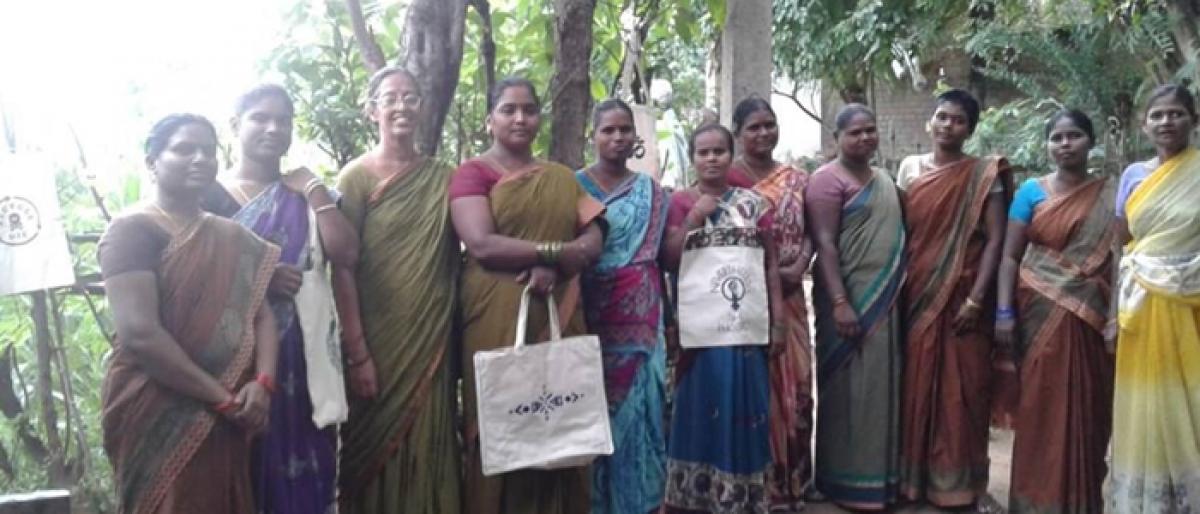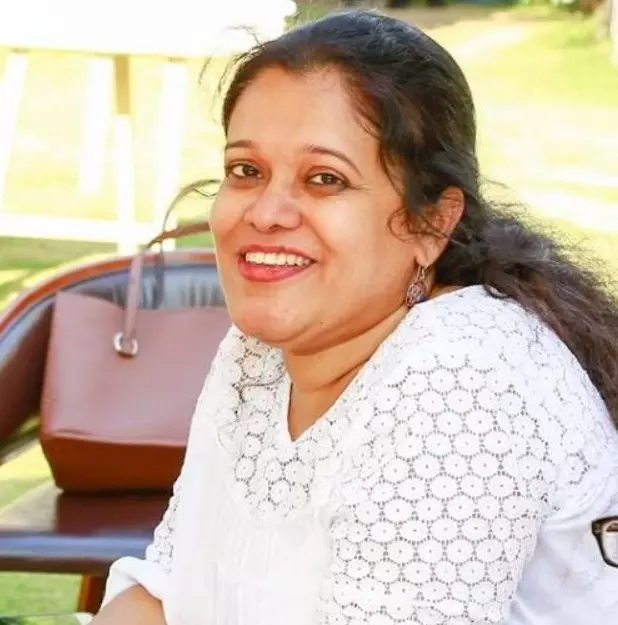Live
- Delhi BJP claims AAP govt will never pay women allowance like in Punjab
- India is 'Mother of Democracy': PM Modi
- ‘One nation, one election’ will undermine India’s federal structure: Mehbooba Mufti
- ‘Bachhala Malli’ trailer heightens anticipation
- Karnataka quota row: Backward Class forum chief warns Lingayat seer over 'tinkering with reservations'
- Tight security arrangements at Group-II examination centers District SP
- Alia Bhatt captures attention in white
- Varun Dhawan talks about ‘Baby John’
- ‘Moonwalk’ trailer promises a quirky heist, love, and loyalty
- Combat leaf spot disease
Just In

Paalaguttapalle, a remote panchayat in Chittoor district and a small Dalit hamlet within the village has been a home away from home for Aparna Krishnan for the last 5 years In fact, it was way back in 1995 itself that she moved to the village after quitting her job in the IT field And five years ago, she and her husband built a house there, and now, they travel between Chennai and the village
Paalaguttapalle, a remote panchayat in Chittoor district and a small Dalit hamlet within the village has been a home away from home for Aparna Krishnan for the last 5 years. In fact, it was way back in 1995 itself that she moved to the village after quitting her job in the IT field. And five years ago, she and her husband built a house there, and now, they travel between Chennai and the village.
Aparna graduated from Indian Institute of Science, Bengaluru, and when she was around 25 years old, she was drawn to the cause of working for the impoverished. “The village is a habitation of largely landless labourers, with about sixty households. We moved to the village in 1995, in our twenties, after resigning our jobs with some readings of Gandhi and a belief in Gram Swaraj.
Local concerns here ranged from dalit issues to organic farming and swadeshi efforts. We have engaged in personal capacity by being part of the community,” she shared. Initially when she wanted to live in a village, she chose Paalaguttapalle to work for the community; later her husband decided to join her, and as years went by, several of her friends began helping her in various capacities. Especially Lavanya, Vignesh and Arun chip in actively.
“We did not want to become an NGO. We bought some land and began to do what is needed, and what can be done. I teach the children, we help them with resolving water and agriculture issues, help with livelihood, afforestation, and intervening to implement rain water harvesting and government schemes. I have learnt Ayurveda and help them.” Aparna is also supplying milk with Ashwagandhi powder to help the malnourished children of the village gain in health. The concept is so effective that it is being implemented in nearby villages with the help of funding from friends.
For some time now, due to agrarian crisis, livelihoods have been affected. With men folk rendered jobless, it was left to women to fend for the families. Originally a group of four women began to make pickles, and amla powder. Some of them stitch well and they began making cotton bags, which has over the time gained in popularity and has become the main stay for generating income. The small group has increased to nine members and they earn enough to sustain their families.
The women Roopa, Rani, Ramila, Nirmala, Annapurna, Lakshmikantha, Anitha, Buji and Kala get together at Aparna’s house and stitch cotton bags, some of them custom-designed for companies and large conferences. It is up to Aparna and friends to help them to get the orders, design the bags and keep the accounts. “They are the ones who are working hard. We are just being their clerks,” she says.
“The women handle the whole process, pick the raw material from the nearby town (unbleached cotton cloth which is least demanding on the environment sourced from Madurai), make the bags, pack and post them to the customers.
Entire production is streamlined, and it has been perfected. Working in rural areas brings in overheads like the distance to source raw material, the distance one needs to go to deal with any break down in the machines, the postal charges to send the products are also more; however, it is their earnings that is sustaining their families. We constantly are on a look out for new customers to help them,” she relates.
The women have recently supplied large number of bags to Organic World Conference; they supply to weddings and saree shops with their logos screen printed. “The latest addition to the portfolio, vegetable compartment bag is a huge hit. It is a substantial bag with pockets and is very utilitarian. The increasing demand for these bags is keeping them busy these days,” adds Aparna, who is open to newer ideas that can help in earning livelihood for the families in Paalaguttapalle. Currently Arun Kombal, the designer in the group is helping them develop a website www.paalaguttapalle.com.
The team of friends have their own jobs/work, which they do on part-time basis. Aparna works on her projects on and off and her husband Nagesh Kolagani, who quit his corporate job is currently teaching in a college. “That is enough to keep us going,” she states, “This work makes us feel fulfilled and content.”

© 2024 Hyderabad Media House Limited/The Hans India. All rights reserved. Powered by hocalwire.com







